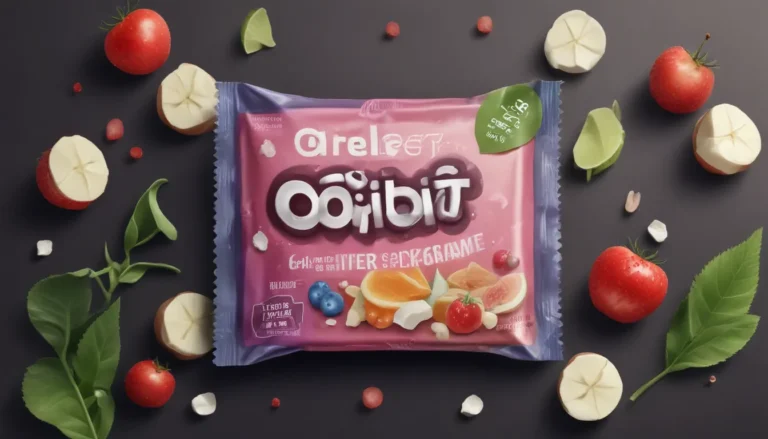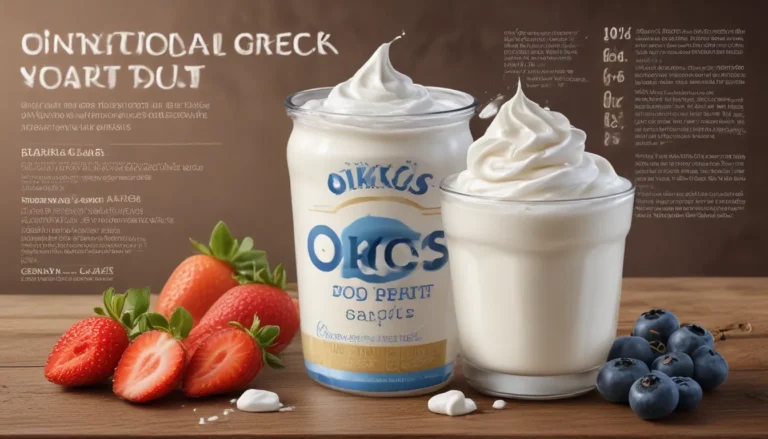The pictures in our articles might not always show exactly what the text is talking about. We use these images to make the article more interesting and eye-catching. They are there to add to the text, but not to replace it or show every detail.
Pancakes, fluffy and delicious, are a breakfast favorite worldwide. And what better way to elevate the taste of pancakes than with a luscious drizzle of syrup? Whether you savor classic maple syrup or indulge in unique flavors like blueberry or caramel, pancake syrup brings a delightful touch of sweetness to every bite. But before you drown your pancakes in syrup, it's crucial to understand its nutrition facts. By being aware of the nutritional content of pancake syrups, you can make informed decisions and enjoy your breakfast with a healthier balance. In this article, let's uncover 19 pancake syrup nutrition facts, shedding light on calories, sugar content, and other essential information. So, let's dive in and explore what's inside that bottle of pancake syrup!
Key Takeaways:
- Pancake syrup is high in sugar and low in nutritional value, so moderation is key. Look for alternative sweeteners and organic options for a healthier choice.
- Keep an eye on serving sizes and check labels for additives. Pancake syrup can be a versatile sweetener, but remember to store it properly and consume it before the best before date.
Calorie Content Varies
The calorie content of pancake syrup can range from 50 to 100 calories per serving. It's important to check the label of your preferred brand to find out the exact calorie count.
High in Sugar
Pancake syrup is notorious for its high sugar content. Most brands contain around 12-15 grams of sugar per tablespoon. Pour with caution to avoid excess sugar intake.
Zero Fat
The good news is that pancake syrup is virtually fat-free. You can drizzle it over your pancakes guilt-free, as long as you keep an eye on the sugar intake.
Limited Nutritional Value
Pancake syrup is primarily composed of sugar and flavorings, offering limited nutritional value. It lacks significant levels of vitamins, minerals, or fiber.
Carbohydrate Powerhouse
Rich in carbohydrates, pancake syrup provides the energy boost needed to kick-start your day. However, be mindful of the accompanying sugar rush.
Serving Size Matters
Nutritional facts are based on specific serving sizes. Practicing portion control when pouring syrup on your pancakes is crucial for a well-balanced meal.
High Fructose Corn Syrup in Most Brands
The primary sweetener in most pancake syrups is high fructose corn syrup (HFCS). This cheaper alternative adds sweetness to the syrup.
Alternative Sweeteners Available
For those looking to reduce sugar intake, there are pancake syrups available with alternative sweeteners like stevia or monk fruit extract.
Contains Trace Amounts of Sodium
Pancake syrup typically contains a small amount of sodium, averaging around 10 milligrams per tablespoon.
Additives and Preservatives
Some pancake syrups may contain additives and preservatives to enhance flavor and extend shelf life. Check the ingredient list if this is a concern for you.
Avoid Artificial Flavors
Opt for pancake syrups free from artificial flavors for a more natural and authentic taste.
Allergen Alert: Tree Nuts
If you have a tree nut allergy, be cautious as some pancake syrups may be processed in facilities that handle tree nuts.
Vegan and Vegetarian-Friendly
Most pancake syrups are suitable for vegans and vegetarians as they are free from animal products.
Gluten-Free Options Available
Gluten-free pancake syrups are labeled as such to cater to individuals following a gluten-free diet.
Look for Organic Varieties
Organic pancake syrups use organically grown ingredients for those who prefer natural products.
Store in a Cool Place
To maintain quality and prevent spoilage, store pancake syrup in a cool, dry place.
Best Before Dates Matter
While pancake syrup has a long shelf life, consume it within the specified best before date for optimal taste and quality.
Versatile Sweetener
Beyond pancakes, pancake syrup can be used to sweeten waffles, French toast, oatmeal, yogurt, and even as a topping for ice cream.
Enjoy in Moderation
Although delicious, pancake syrup should be enjoyed in moderation due to its high sugar content. Balance is key for a healthy lifestyle.
Equipped with these 19 pancake syrup nutrition facts, you can now make informed decisions about your breakfast syrup choices. Remember to check labels and enjoy your pancakes responsibly!
Conclusion
Understanding the nutrition facts of pancake syrup is crucial for making informed dietary choices. While pancake syrup can enhance the flavor of your breakfast, it should be enjoyed in moderation due to its high sugar content. Opting for natural and low-calorie alternatives like sugar-free syrup or maple syrup can be a healthier choice. Always check labels and choose syrups without added artificial sweeteners or high-fructose corn syrup. Additionally, consider portion size to manage your calorie intake. Balancing syrup consumption with a nutritious meal ensures a well-rounded diet. By being mindful of the nutritional content in pancake syrup and making conscious choices, you can enjoy this sweet treat while prioritizing your health and well-being.
FAQs
-
How many calories are in pancake syrup?
Pancake syrup typically contains around 210-220 calories per 1/4 cup serving, equivalent to approximately 60ml. -
Is pancake syrup high in sugar?
Yes, pancake syrup is high in sugar, containing approximately 53-55 grams of sugar per 1/4 cup serving. -
Are there low-calorie alternatives to pancake syrup?
Yes, low-calorie alternatives like sugar-free syrup or maple syrup are available, offering reduced calorie and sugar content. -
What is the difference between pancake syrup and maple syrup?
The main difference lies in the ingredients. Pancake syrup is typically made with high-fructose corn syrup, while maple syrup is derived from the sap of maple trees. Maple syrup is often considered a more natural option. -
Can pancake syrup be a part of a healthy diet?
While pancake syrup can be part of a balanced diet, it should be consumed in moderation due to its high sugar content. Pairing it with a nutritious meal containing proteins, fiber, and healthy fats is essential for a healthy diet.
Our commitment to providing accurate and engaging content guides every fact we share. Contributed by real users, each fact undergoes meticulous review by our editors for accuracy and credibility. Trust in our dedication to quality and authenticity as you explore and learn with us.






